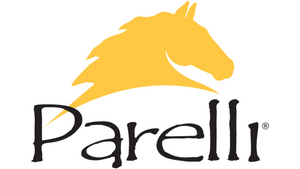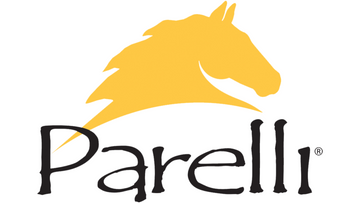Horse Years to Human Years: All About the Equine Lifespan
by Parelli Professionals on Sep 18, 2024

Most people have heard of dog years, but have you ever considered horse years? With these simple calculations, you can learn how your horse ages compared to you.
Calculating Horse Age to Human Age
To compare your horse’s age to the human lifespan, you need to have a good way to compare the ages. Overall, horses live for approximately 30 years. This number varies greatly depending on genetics, breed, health, and living conditions. If you need to determine your horse’s age in human years, you have a few methods you can use.
Horse Age Calculation Methods
When it comes to dogs, it is common knowledge to multiply a dog’s age by 7 to calculate his age in human years. You can use a similar method to estimate the age of your horse in human years with the number 3. If you have a 5-year-old horse, he is roughly 15 in human years. Like the calculation for dogs, this method is not perfect. It assumes all breeds and genders are the same.
There are many charts you can use that are specific for breed and gender. Many equine veterinarian textbooks contain charts to determine a more accurate age for your horse.
Useful Tools and Charts
Several online calculators use information like breed and gender to calculate your horse's age for you. Most often, these calculators leverage those charts mentioned above. The calculator will ask you for your horse’s date of birth, gender, and breed.
There are instances where you do not know your horse’s date of birth. In this case, you can use their teeth to estimate their age. Overall, tooth growth and condition are a good measure of a horse's age.
The Average Age of a Horse
An average-sized horse can live to be between 25 and 30 years old. Smaller horse breeds tend to live slightly longer, closer to 40 years. On the other hand, larger horses live shorter lives, closer to 20 years.
Several factors affect a horse's lifespan, including breed, genetics, and overall health. Breed and genetics are vital to determining how long your horse will live. Breed size will set your horse's life expectancy. Additionally, the health of his lineage will make a big difference.
You have control over the overall level of care your horse receives. A cared-for horse who receives adequate nutrition and exercise will live longer than a horse in poor living conditions. Even if you find your horse later in his life, you can still extend his life expectancy with proper care and medical treatment.
Different maturity rates
Horses reach maturity at a different age than humans. Foals walk within a couple of hours of birth, while humans take almost a year. Animal experts believe that horses reach physical maturity at the age of 5. However, humans do not reach maturity until closer to 20 years.
Humans have evolved to physically and mentally mature later in life so that their brains develop properly. We are essentially at the top of the food chain and do not face many exterior threats, which allows us to develop in this way.
Horses are prey animals and must mature, reproduce, and physically develop faster to survive. There are no significant differences between wild and domesticated horses. Domesticated horses with no real threats mature at the same rate as wild horses. However, domesticated horses do have longer average lifespans.
Horse Life Stages
Like all animals, horses have different life stages. Each life stage is grouped together into a bracket of years that share similar characteristics. Horse owners need to know the different life stages to understand their horses' physical and mental development. The three major life stages are adolescence, adulthood, and seniorhood.
Adolescent
Horses are considered adolescents from foal to about three years of age. Your horse will experience rapid physical and mental development during those first three years. Hormones drive a significant amount of the development that your horse will undergo in this stage until it reaches sexual maturity. From a training perspective, these are critical years for developing a trusting partnership with your horse.
Adult
A horse reaches full maturity around five years old. Adulthood is the longest life stage of your horse. A horse is considered an adult from 5 to about 13-15, depending on the breed. During this age, your horse will stop growing in height. Most horse owners notice their horses “filling out” around ages four and five.
Seniors
Senior horse age varies slightly based on breed, but most people agree horses over 15 are seniors. Senior horses have weaker immune systems, weakened muscles, and intestinal and dental issues. They are more likely to struggle with musculoskeletal injuries and cancers. Many veterinarians specialize in senior equine care. These horses have unique needs that require adjusting diets, supplements, and exercise plans.
Factors Affecting Aging in Horses
Genetics
One of the biggest factors affecting your horse's age is genetics. Trusted breeders research the genetics and potential issues before breeding. Some breeds are prone to specific genetic issues, and a knowledgeable breeder will be aware of and avoid these genetics.
Nutrition
Your horse's diet and nutrition will play a major role in his lifespan. Poor quality or inconsistent nutrition can lead to secondary diseases and digestive issues, while overfeeding can cause obesity and early arthritis. Most horses consume roughly 2% of their body weight per day in forage (either hay or grass) and grain. Hay analysis can provide insight into your hay quality and any nutrient deficiencies you may need to supplement.
Exercise
Horses of different breeds and ages need different levels of exercise. Work with your veterinarian to develop the perfect exercise plan for your horse. It will promote a healthy weight and improve his overall health.
The Parelli 7 Games are a great way to incorporate more movement and exercise for your horse and increase your horse’s mental, emotional and physical health, no matter their age or stage. The 7 Games are a balance of bonding and yielding exercises that are played on the ground and riding, are good for any horse and are a key component to building a healthy relationship with your horse. Click here to learn more and get started having fun and growing a solid relationship with your horse today, one that will last a lifetime!







